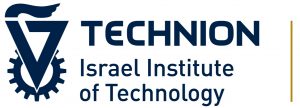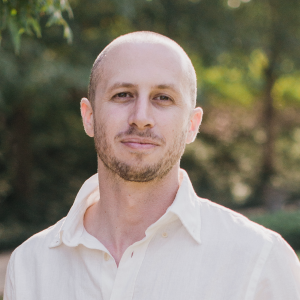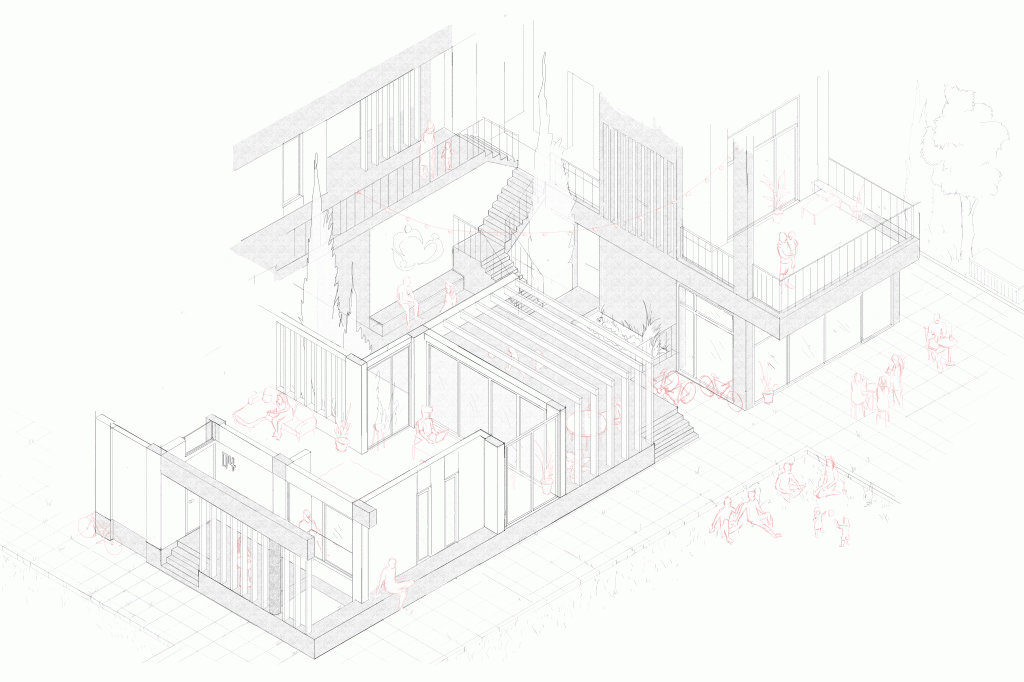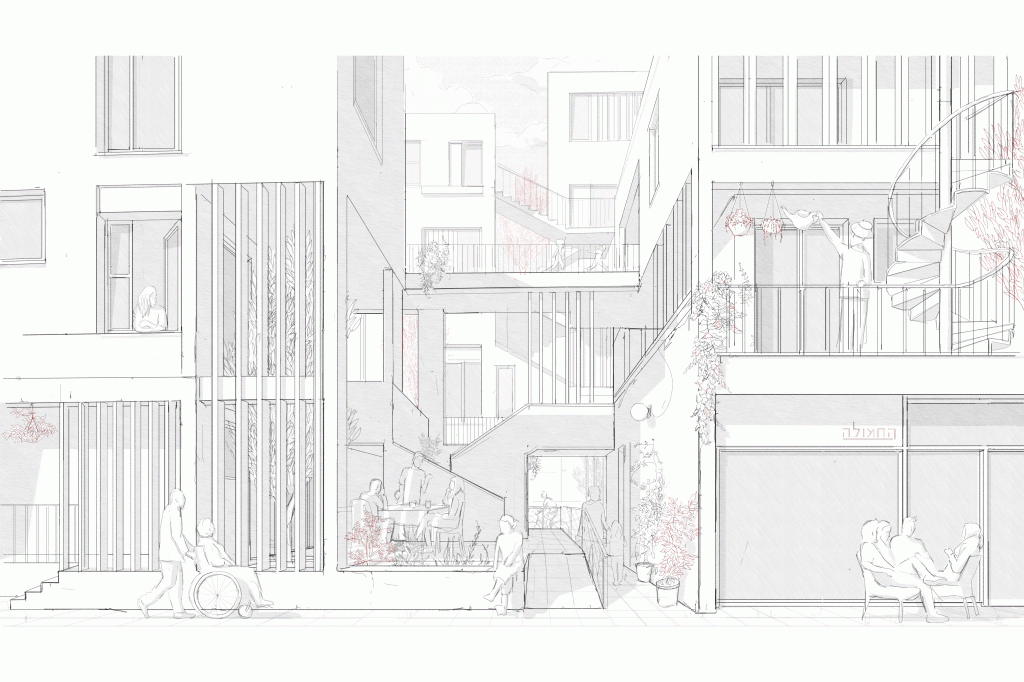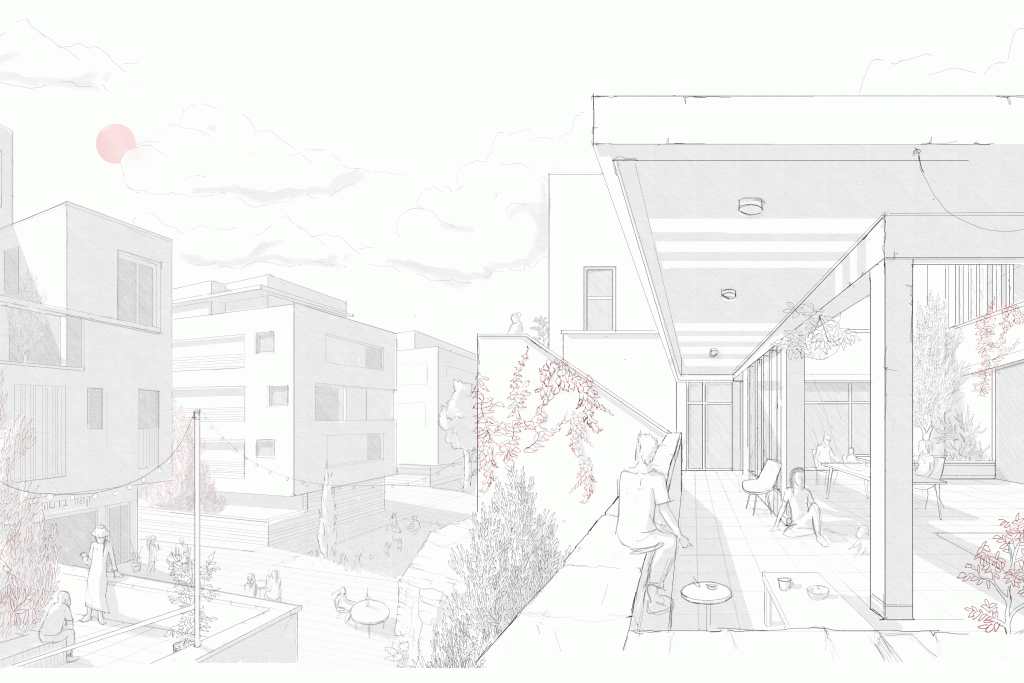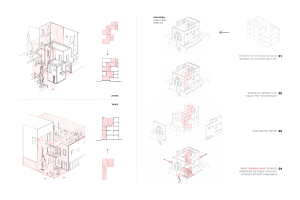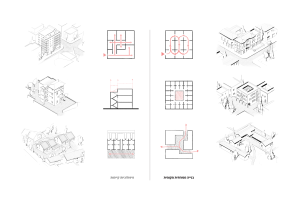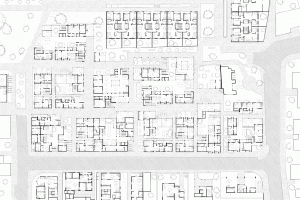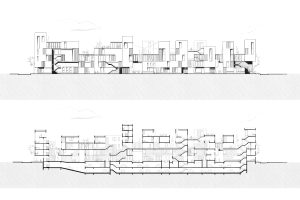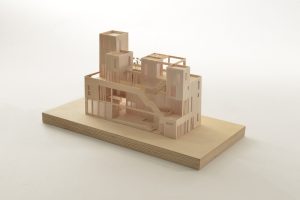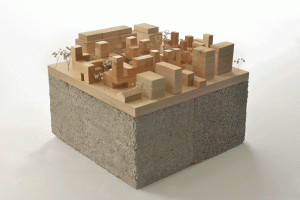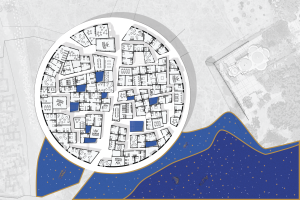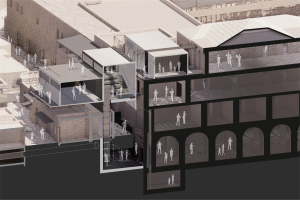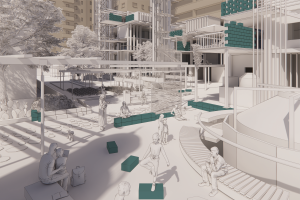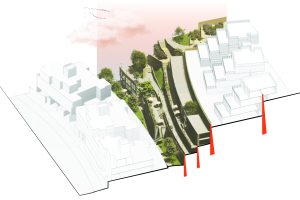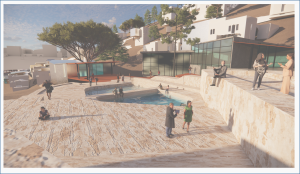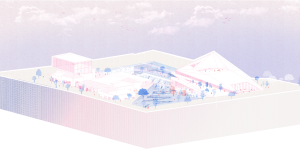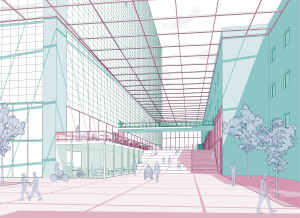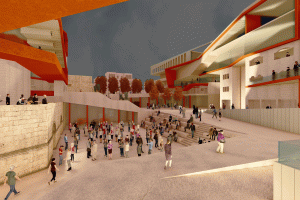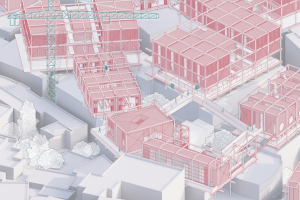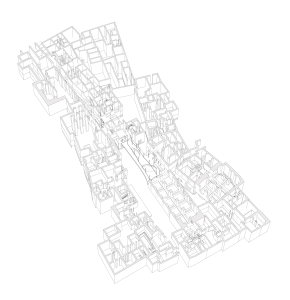Reunion or Revolution
The characteristics of the “Israeli family” have changed, transitioning from a fixed and defined nuclear unit into diverse and dynamic familial configurations. The project views this phenomenon, which has been witnessed in every ethnicity and built environment in Israel, as the rejuvenation of local traditions and values as well as a mechanism to withstand current social and economic challenges.
Despite their prevalence and contributions, such changes have yet to be addressed by the local planning authorities, who still follow design paradigms that view the nuclear family apartment as the exclusive building and social unit. The proposed project seeks to challenge this approach and view the family more broadly as a social resource that provides a foundation for a new local residential and architectural urban entity.
Through the examination of both traditional residential complexes, which may be suited for extended families, and contemporary local typologies, the project derives principles for designing diverse familial dwellings.
These principles are implemented in an urban context through a proposed residential complex located in southern Tel Aviv. The design forms the residential block as an open urban system that connects communal amenities and housing and provides conditions for long-term community and occupancy for varied social groups.
